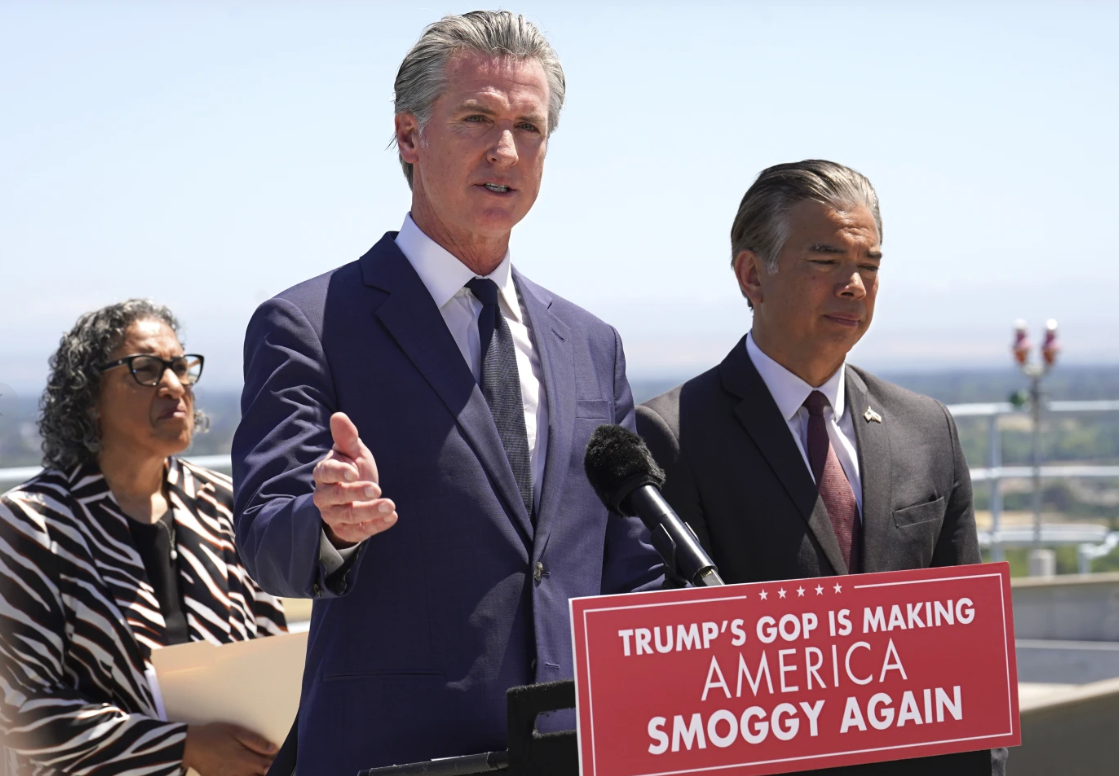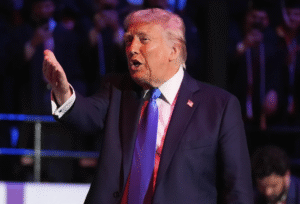The U.S. Senate voted Thursday to overturn California’s landmark regulation that would ban the sale of new gas-powered vehicles by 2035, striking a major blow to one of the nation’s most ambitious environmental policies. The move aligns with President Donald Trump’s renewed push to support fossil fuels and rolls back key efforts aimed at accelerating the electric vehicle transition.
Alongside this vote, the Senate also passed measures to block two additional California rules—one targeting tailpipe emissions and another restricting nitrogen oxide pollution from trucks. All three resolutions had already passed the House and are now headed to the White House, where President Trump is expected to sign them into law.
California leaders have condemned the effort, promising legal action to defend their rules. Governor Gavin Newsom emphasized that the issue is not about electric vehicles, but about protecting communities from increased pollution. State Attorney General Rob Bonta argued the votes were pushed through improperly and vowed to challenge them in court, especially criticizing the Senate GOP for bypassing the usual filibuster rules by creating a narrow procedural exception.
California’s regulations have significant influence nationwide, as the state accounts for around 11% of the U.S. car market. Over a dozen other states have aligned their own policies with California’s, amplifying the potential impact of the Senate’s decision. Vehicles remain one of the largest sources of greenhouse gas emissions in the country.
Democrats accused Republicans of siding with the fossil fuel industry and undermining states’ rights to protect public health. Senator Adam Schiff of California warned that the federal intervention sets a dangerous precedent that threatens state autonomy.
Republicans defended their actions by arguing that California’s rules are economically harmful, unrealistic for automakers, and pose risks to the power grid. Senator John Barrasso of Wyoming described the electric vehicle mandate as an unattainable goal for the U.S. economy.
The dispute stems from California’s 2020 decision to phase out new gas-powered vehicles by 2035, while still allowing the sale of used gas cars and hybrids. The Biden administration approved the state’s right to implement these rules late last year. However, the new Trump administration has sought to reverse course, backing broader fossil fuel use and rolling back green energy mandates.
Despite a legal opinion earlier this year stating that California’s rules fall outside the scope of the Congressional Review Act—a mechanism allowing Congress to overturn federal regulations—the Senate found a procedural workaround to bring the measures to a vote. Senate Democrats strongly opposed the move, viewing it as another erosion of filibuster norms.
Only one Democrat, Michigan Senator Elissa Slotkin, voted with Republicans to block the vehicle ban. Slotkin cited her responsibility to protect the livelihoods of over one million workers in Michigan’s auto industry.
John Bozzella, head of the Alliance for Automotive Innovation, said the mandates were always unrealistic, noting a disconnect between consumer demand and regulatory expectations.
The clash over California’s environmental rules could shape the national conversation on state authority, environmental policy, and the future of the U.S. auto industry for years to come.













